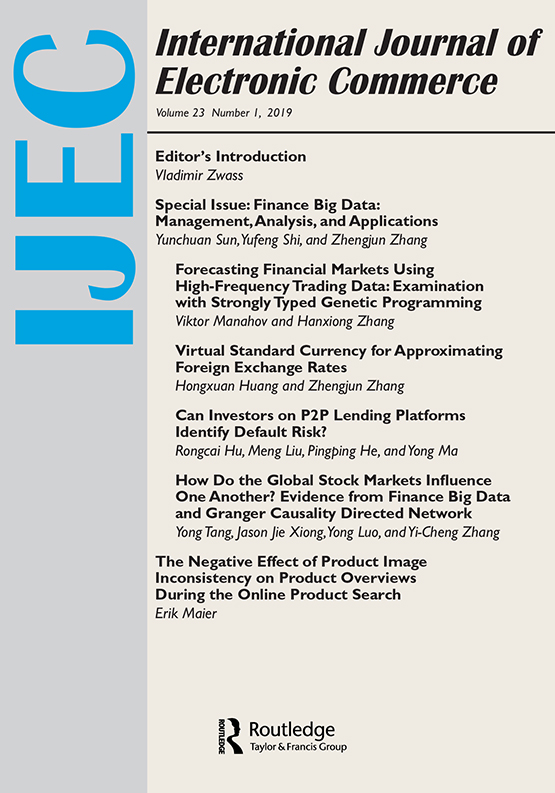Fixed Fee or Proportional Fee? Contracts in Platform Selling Under Asymmetric Information
IF 3.8
3区 管理学
Q2 BUSINESS
International Journal of Electronic Commerce
Pub Date : 2022-04-03
DOI:10.1080/10864415.2022.2050584
引用次数: 7
Abstract
ABSTRACT In platform selling, platforms commonly charge third-party sellers a commission fee, which affects sellers’ decision making and platforms’ contract choice. This study explores this choice where a platform privately knows the market size and intends to signal to a seller. We aim to provide researchers and platform-selling practitioners insights into contract and information strategies. The result shows that the fixed-fee contract leads to either a costly or a costless signaling scenario. In costly scenarios, the high-demand platform must downward distort the fixed rent to distinguish itself from the low-demand platform. This distortion results in a different consensus on two players’ contract preference when the commission rate in the proportional-fee contract is exogenous. Under symmetric information, consensus is achieved only on the proportional-fee contract. However, in asymmetric information settings, this consensus may arise on fixed-fee contracts if market uncertainty is high. Furthermore, the comparison of information strategies reveals that players can reach an agreement on both the information-sharing strategy and the proportional-fee contract under certain conditions. When the platform endogenously determines the commission rate, this decision making can also signal demand type, and only the proportional-fee contract leads to a win–win outcome.固定收费还是按比例收费?信息不对称条件下的平台买卖契约
摘要在平台销售中,平台通常向第三方卖家收取佣金,这影响了卖家的决策和平台的合同选择。本研究探讨了这种选择,即平台私下知道市场规模,并打算向卖家发出信号。我们旨在为研究人员和平台销售从业者提供有关合同和信息策略的见解。结果表明,固定费用合同会导致成本高昂或无成本的信号场景。在成本高昂的场景中,高需求平台必须向下扭曲固定租金,以区别于低需求平台。当比例费用合同中的佣金率是外生的时,这种扭曲导致了对两个球员的合同偏好的不同共识。在对称信息下,只有在比例费用契约上才能达成共识。然而,在信息不对称的情况下,如果市场不确定性很高,这种共识可能会在固定费用合同上产生。此外,信息策略的比较表明,在一定条件下,玩家可以就信息共享策略和比例费用合同达成一致。当平台内生决定佣金率时,这种决策也可以表明需求类型,只有比例费用合同才能产生双赢的结果。
本文章由计算机程序翻译,如有差异,请以英文原文为准。
求助全文
约1分钟内获得全文
求助全文
来源期刊

International Journal of Electronic Commerce
工程技术-计算机:软件工程
CiteScore
7.20
自引率
16.00%
发文量
18
审稿时长
>12 weeks
期刊介绍:
The International Journal of Electronic Commerce is the leading refereed quarterly devoted to advancing the understanding and practice of electronic commerce. It serves the needs of researchers as well as practitioners and executives involved in electronic commerce. The Journal aims to offer an integrated view of the field by presenting approaches of multiple disciplines.
Electronic commerce is the sharing of business information, maintaining business relationships, and conducting business transactions by digital means over telecommunications networks. The Journal accepts empirical and interpretive submissions that make a significant novel contribution to this field.
 求助内容:
求助内容: 应助结果提醒方式:
应助结果提醒方式:


